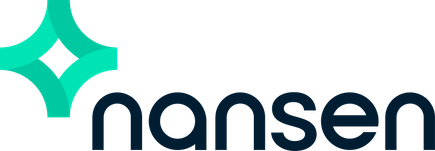Introduction
This article outlines how to integrate NFTs into your Web3 application using the SimpleHash API. We'll cover the core steps for accessing and utilizing NFT data from multiple blockchains and marketplaces through a single interface. The focus will be on what you need to know to begin integration, and the different use cases depending on application types.
Why use an NFT API?
Using an NFT API like SimpleHash instead of building in-house infrastructure saves developers significant time and costs. It eliminates the need for extensive research and development to support multiple blockchains, which can be resource-intensive. With an API, developers gain instant access to a broad range of NFT data, ensuring quicker deployment and reduced overhead. This approach allows teams to focus on core product features rather than the complexities of blockchain integration and data standardization. Using an NFT API generally provides much faster access times to NFT data for two main reasons: 1) a significant number of RPC calls often need to be made to pull the on-chain metadata and ownership state of an NFT and 2) accessing the off-chain metadata and media can also be time-intensive. Using an NFT API like SimpleHash avoids this, with the latest state and media constantly being cached for all indexed NFTs.
What methods can be used to access NFT data?
SimpleHash offers three distinct methods for accessing NFT data, each suited to different use cases:
The REST API, with its pre-defined endpoints, is ideal for applications requiring specific, on-demand data queries, providing flexibility for targeted requests. The webhooks solution, on the other hand, is better for real-time applications that need to respond immediately to defined events, such as changes in NFT ownership or market value. Lastly, the bulk service, available via Kafka or Postgres, caters to scenarios requiring extensive data analysis or reporting, offering comprehensive datasets for in-depth insights. Developers can choose based on their application's need for real-time updates, specific data queries, or large-scale data analysis.
Getting started
Obtaining credentials is easy. For the REST API and webhooks, visit the SimpleHash developer portal to generate keys. For the bulk service, get in touch with the SimpleHash team at hello@simplehash.com to be provisioned with credentials, and check out the full set of schemas available.
Utilizing the common NFT data schema
Having a common schema for all chains in SimpleHash is crucial because it simplifies the development of applications involving multiple blockchains. This unified approach allows developers to seamlessly integrate and interact with diverse NFT data without the need to understand and adapt to the nuances of each blockchain's data structure. As a result, developers can efficiently build applications that operate across multiple chains, ensuring consistency in data handling and reducing the complexity and time required for cross-chain integration. Unlike other alternatives, SimpleHash also allows for querying multiple chains in a single query, from a single API endpoint, further simplifying development. All the core schema model types can be accessed on the SimpleHash docs site.
SimpleHash has schemas for all of the core NFT data types, available across endpoints and delivery methods, including:
These schemas are available from the dozens of different blockchains SimpleHash supports (full list maintained here), and many draw data from the major ecosystem NFT marketplaces.
Integrating NFTs into a Crypto Wallet
For wallet developers, the access method used will be based on functional requirements. Webhooks are practical for wallets needing timely notifications about NFT transfers and ownership changes to send their users. The REST API is more suitable for retrieving user-owned NFTs, transaction histories, and wallet valuations. It provides targeted, on-demand data access. For back of house data analysis or extensive reporting needs, the Kafka or Postgres bulk service is recommended. Most SimpleHash wallet customers use a conjunction of the REST API and webhooks in their client applications, and include both a summary collection-level view for their users, with the ability to "drill down" into the individual token level.
Integrating NFTs into a Marketplace
For NFT marketplaces, the REST API may be best suited for retrieving detailed NFT data such as provenance, current and historical pricing, and ownership details (e.g., on item listing pages). Webhooks are vital for tracking real-time events like new NFT listings, sales, and ownership transfers. This functionality enables marketplaces to provide immediate updates to users, keeping them engaged with the latest market activities, or to show a live events stream. It's also useful for features like bidding and auction systems where timely information is critical. The Kafka or Postgres bulk service suits marketplaces needing to analyze market trends and user behaviors. This data is valuable for generating insights into popular collections, pricing trends, and user preferences, guiding marketplace strategy and curation.
Integrating NFTs into a web3 game
For a Web3 game where NFTs represent in-game items, integrating the SimpleHash REST API and webhooks can significantly enhance game functionality and user experience, while reducing latency. The REST API is ideal for accessing detailed information about NFTs that represent in-game items. Developers can use it to query specific item data, such as ownership, item history, and attributes, crucial for in-game mechanics and player interactions. This allows for a seamless integration of NFT items into the game's ecosystem, ensuring players have up-to-date information about their assets.
Webhooks, on the other hand, are essential for real-time updates regarding NFT transactions. They can be used to notify the game server immediately when an in-game item (NFT) changes hands or undergoes any other significant event. This is particularly useful for maintaining the integrity of the game's economy and for triggering in-game responses to these changes, such as updating a player's inventory or modifying game state based on ownership changes.
Using NFT data for crypto tax software
For crypto tax software, the SimpleHash REST API can be used to obtain historical and real-time valuations of tokens, wallets, and collections. This API enables the application to access detailed information about the value of NFTs at different points in time, which is crucial for projected tax calculations. For instance, when a user needs to report capital gains or losses from NFT transactions, the software can use the REST API to fetch historical valuation or sales data of specific NFTs at the time of purchase and sale (or for their collections).
Additionally, the REST API is useful for real-time valuation of wallets and collections. Crypto tax software can leverage this to provide users with an up-to-date overview of their tax liabilities based on current market values. This feature is especially important in the volatile crypto market, where asset values can fluctuate significantly. By integrating the REST API, crypto tax software can offer users a comprehensive and accurate tool for tracking and reporting their NFT-related tax obligations, simplifying the complex process of crypto tax compliance.
Using NFT data for trading applications
For NFT trading applications, utilizing the SimpleHash bulk service, available via Kafka or Postgres is the best option, especially for handling large datasets integral to trading analysis and strategy development. The bulk service provides comprehensive access to extensive NFT data across multiple blockchains, crucial for applications that require a macro view of the NFT market. This includes historical trading data, trends in pricing, and information on wide-ranging collections and assets.
NFT trading applications often need to analyze vast amounts of data to identify market trends, forecast pricing, and understand buyer and seller behaviors. The bulk service facilitates this by enabling the aggregation and analysis of large datasets. This is particularly valuable for developing sophisticated trading algorithms, performing market research, and generating detailed reports for users. Pulling the same underlying data via the REST API might involve an inefficient number of calls.
Moreover, for applications that offer features like portfolio tracking and market analytics, the bulk service ensures that they have the necessary data breadth and depth. This empowers traders and investors with insights needed for informed decision-making, enhancing the application's value as a comprehensive trading tool. In summary, the bulk service is essential for NFT trading applications that rely on extensive data analysis to provide advanced trading insights and market intelligence.
Conclusion
For developers looking to enhance their applications with NFT functionality, SimpleHash provides a comprehensive, adaptable solution. As next steps, we encourage reading the SimpleHash API docs to understand the specific applications of each access method, and the full datasets available. For more detailed guidance or to discuss unique application needs, the SimpleHash team is readily available for support at hello@simplehash.com - we'd love to hear from you.


















